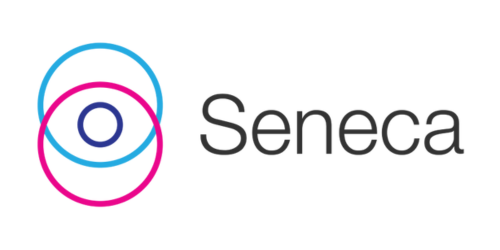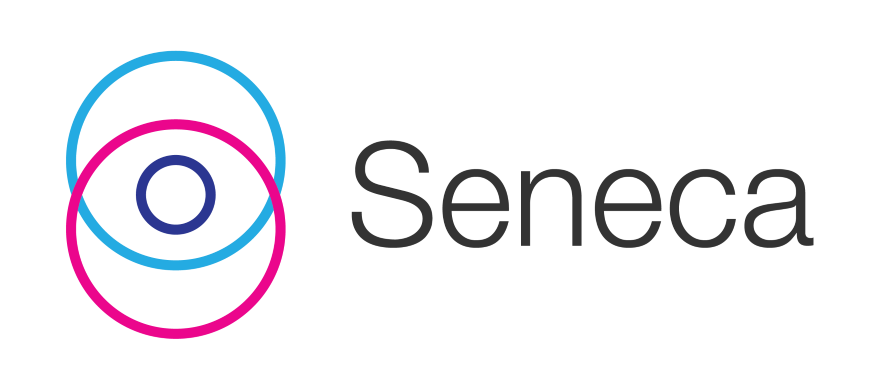Luke Laretive of Seneca Financial Solutions highlights 3 significant ASX shares, namely, MMA Offshore Ltd (ASX: MRM), RPMGlobal Holdings Ltd (ASX: RUL), and Life360 Inc (ASX: 360), that upgraded earnings during November. Are these share prices a buy today?
AGM season in November is a key source of new information with management teams updating forward-looking revenue and profit guidance.
AGM season in November is a key source of new information for fund managers with many of the ASX-listed company management teams providing updates to forward-looking revenue and profit guidance.
Recent revenue and profit upgrades in the small-cap sector highlight the disparity between the positive and improving business operating environment and the negative outlook implied by valuations and analyst estimates across the S&P/ASX Small Ordinaries Index [XSO] (INDEXASX: XSO), with that benchmark down -1.15% calendar year-to-date.
Our recently launched Seneca Australian Small Companies Fund has been investing in companies that offer sustainable earnings growth, independent of economic conditions at highly attractive valuations.
Companies that upgraded guidance during November
MMA Offshore Ltd
MMA Offshore Ltd jumped c.15% after issuing a trading update stating that 1H’24 EBITDA would be in the range of A$55-$60 million, implying EBITDA growth of 70% to 90% on the same time last year. The large upgrade was c.30% above market expectations and comes after the balance sheet moved to a net cash position of $14.7m as at 30 June 2023.
MMA Offshore share price
MMA Offshore is a leading provider of boats for the offshore energy sector. The business credited the strong start to the year to vessels, subsea, and project logistics divisions all delivering higher than expected earnings, i.e. the whole business is humming. New contracts have been announced at increasing rates as existing boat contracts roll off, boosting profit margins for MRM.
The caveat is that MRM is a cyclical business. Investors have been reluctant to price it on a mid-cycle EV/EBITDA multiple, after being burned by a protracted cyclical downturn from 2014 to 2021. This downturn resulted in a toxic combination of high debt levels and declining earnings that when combined, resulted in the share price falling from $24.00 per share to $0.25 per share!
Given the cyclicality, the behavioural instinct is to take profits and run. However, the flip side of the long downcycle is the potential for a long upcycle in the offshore energy sector. Our analysis suggests that the vessel market is tight, with the current shortage of vessels exacerbated by the lack of new builds coming to market. Between rampant cost inflation, increasing the cost of capital, and the long lead for build times, we may not see a sustained supply response until 2025, at the earliest.
Confidence in a ‘higher for longer’ oil price will dictate offshore oil and gas exploration capex and ultimately project decisions – to which MRM Offshore are exposed. The Brent Crude oil price has traded above US$70 per barrel since August 2021, leading to oil companies ‘pushing go’ on projects in offshore Africa and the Gulf of Mexico.
On the ASX, investors may be familiar with Woodside Energy Group Ltd (ASX: WDS)’s Sangomar project off the coast of West Africa, or Karoon Energy Ltd (ASX: KAR)’s Bauna oil field in offshore Brazil.
The sector’s pipeline of work has resulted in positive momentum that is showing no signs of slowing down – offshore rig providers are reporting increasing day rates and peers reporting bullish read-throughs. Offshore services provider Subsea 7 SA (OTCMKTS: SUBCY) sees EBITDA margins reaching 15%-20% by FY25 from 13% currently, driven by a large backlog (up +52% vs pcp) and is forecasting room for price increases. Commentary from offshore vessel company Tidewater Inc (NYSE: TDW) this month suggested that market positivity is being driven by the “continued upturn in projects investment, a supportive energy price environment, firm demand and ongoing constraints in fleet supply with demand momentum expected to build further into 2024 and 2025”.
MRM now trades at a slight premium to its NTA per share of $1.30 (as at 30 June 2023), for the first time in 8 years. MRM has moved from a weak net debt balance sheet to a strong net cash position allowing them flexibility to purchase boats from a competitor in November. We estimate that the reported NTA could be ~10% higher in FY24. During the last upcycle 2009 – 2013, MRM traded between 2.0 – 2.5x NTA.
Annualising the EBITDA performance, assuming no growth (H2 was slightly seasonally stronger last year), would see earnings +47% ahead of current consensus estimates. We think the market is still underestimating the tight supply/demand for offshore service vessels and see MRM as one of the best placed to benefit from the catch-up spending in the energy sector. It’s a key position in the Seneca Australian Small Companies Fund.
RPMGlobal Holdings Ltd
RPMGlobal Holdings Ltd received a $3.1m one-off payment related to a software agreement, causing the company to upgrade FY24 EBITDA guidance (before management incentives) to between $21.5m to $23.5m, a 15% upgrade at the midpoint from prior guidance of $18.5m to $20.5m previously. The share price was up 6% in November and added a further 3% in December.
RPMGlobal share price
RPMGlobal has a suite of enterprise software for mining customers that includes mine planning, mobile equipment management, finance management and more. The business is most of the way through a multi-year transition from a license/maintenance/advisory revenue model to a subscription-based revenue model which should maximise customer lifetime value.
While the specific circumstances of the upgrade seem like a one-off (RUL cited a change of control of the contract counterparty), we are optimistic about the company’s prospects as it transitions from upfront software licences to recurring subscription revenue with what we suspect will be minimal churn.
The first three months of the year are typically quieter for the company but as we have seen with this upgrade, it doesn’t take much to move the dial for incremental profits. At the guidance midpoint, EBITDA would be 30% higher than FY23, demonstrating the operating leverage of the new model.
RUL trades on 8.5x EV/EBITDA (before R&D – RUL largely expenses it), with substantial upside for shares at current levels if RUL were to re-rate to ASX-listed software/tech peers with an EV/EBITDA average in the high 20’s (on a comparable pre-R&D basis).
There has also been corporate activity in the mining software sector which is also supportive of a higher valuation. Mine modelling software company Micromine was nearly bought by Aspen Technology Inc (NASDAQ: AZPN) in 2022 for $900m, equating to an estimated 30x EV/EBITDA – before the deal fell overdue to regulatory approvals. Sandvik acquired mine planning software player Deswik at a similar valuation.
With $34.8m cash (no debt) as at 30 June 2023, an on-market share buyback signals management’s belief that shares are undervalued. CEO and 3.5% shareholder Richard Matthews has a history of selling software businesses – Mincom went for A$315m in 2007 and the US billing division of eServGlobal (ASX: ESV) for A$113.4m in 2010, well above the whole company’s A$88.6m market cap at the time.
RUL is currently held in the Seneca Australian Small Companies Fund.
Life360 Inc
Life360 Inc reiterated CY23 guidance for more than 50% YoY growth for its core Life360 subscription revenue (from US$153.3m in CY22) and consolidated revenue of US$300 million – US$310 million. Guidance for Positive Adjusted EBITDA increased to US$12 million – US$16 million from US$9 million – US$14 million. The share price spiked 12% on the day before retracing to give up the gains over the subsequent days.
Life360 share price
Life360 has a family safety app where parents can track kids’ movements and get notified in the event of an emergency (e.g. a Car crash). The app is sold through a freemium user model, whereby an undisclosed portion of its ~50 million monthly active users pay between US$15 – US$25/month, depending on your membership tier, for the premium version of the app.
While a positive uplift in profit guidance, the company’s use of adjusted EBITDA is a red flag, with a statutory EBITDA loss for the 9 months to 30 September 2023 of -$18.8 million. $30.5 million in non-GAAP adjustments, of which ~90% relates to stock-based compensation, inflates the reported adjusted EBITDA figure.
We believe that stock-based compensation, instead of paying employees cash salaries (which would otherwise be expensed), should be accounted for and subsequently makes us wary of believing that Life360 is sustainably profitable just yet.
We do think EBITDA can be a valuable metric for investors to assess (alongside other metrics), but as Charlie Munger warns investors “every time you hear ‘EBITDA’ substitute it with bull**** earnings”, and this especially rings true when various non-statutory adjustments have been made by the company.
As always, it pays to look at incentives, and although Life360’s remuneration incentives are somewhat opaque, we can’t help but cast our mind to Tyro Payments (ASX: TYR).
Tyro is another company that excludes share-based payments from EBITDA calculations – probably because 50% of Tyro’s management incentive structure is tied to EBITDA before share-based payments and excluding intangibles capital expenditure. Tyro recently looked to buy back those shares issued as stock-based compensation… using cash! Almost sounds like a cash salary… but we digress.
While Life360’s word-of-mouth referrals from parents and rapid take-up are attractive features, they are also its greatest weakness, with low barriers to churn meaning the company needs to grow significantly just to stand still. Mobile apps are a highly competitive landscape with most apps failing to generate sustained momentum after being ‘flavour of the month’.
We struggle to see a competitive moat, especially with Apple’s built-in ‘Find My iPhone’ feature. It’s never a good idea to compete with big tech as a small company, and Life360’s Tile acquisition is no different, thanks to Apple Inc (NASDAQ: AAPL) offering its own compact GPS tracking AirTag product. Given it’s a non-core product for Apple, they can offer the Airtag for an upfront cost of just A$50, relative to Tile which charges A$40 plus an ongoing subscription fee of ~A$40+ per annum depending on the product.
Life360 has rallied nearly 100% from the share price lows of just 6 months ago to a valuation of ~$1.5 billion today. We think Life360 will struggle to be sustainably cashflow positive, let alone achieve the profitable growth implied by the current share price.
Until we see evidence of improving unit economics, we’re content sitting on the sidelines for now and keeping 360 on the watchlist.


